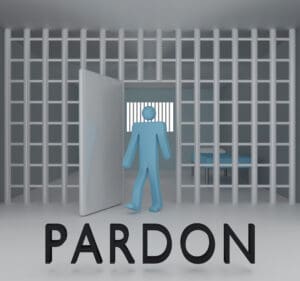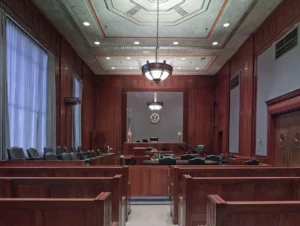Most educational institutions have clear policies in place for addressing sexual misconduct cases, as required by Title IX. However, navigating the complexities of this federal law can be overwhelming for both students and faculty alike. Understanding the intricacies of Title IX is crucial for handling these sensitive situations effectively and ensuring justice for all parties involved.
From defining sexual harassment to outlining investigation procedures, this guide is designed to provide a comprehensive overview of Title IX regulations. We will research into the rights and responsibilities of both the accuser and the accused, as well as the role of Title IX coordinators in the resolution process. By familiarizing yourself with these guidelines, you can better navigate the legal framework surrounding sexual misconduct cases and advocate for a fair and equitable outcome.
Whether you are a student seeking support, a faculty member involved in a case, or an administrator tasked with upholding Title IX compliance, this guide will serve as a valuable resource. By following the steps outlined here and staying informed on the latest developments in Title IX legislation, you can navigate the complexities of handling sexual misconduct cases with confidence and clarity. Let’s work together to create a campus environment that is safe, respectful, and free from all forms of gender-based violence.
Understanding Title IX
Overview and History
Any educational institution that receives federal funding must comply with Title IX, a federal civil rights law passed in 1972 as part of the Education Amendments. Title IX prohibits discrimination on the basis of sex in education programs and activities. Originally focused on promoting gender equity in sports, Title IX has since expanded to address sexual harassment and sexual violence on college campuses.
Since its inception, Title IX has played a crucial role in ensuring equal access to education and creating safer environments for all students. It mandates that schools take immediate and appropriate action in response to reports of sexual misconduct, investigate allegations thoroughly, and provide support for survivors. Title IX also demands that educational institutions offer prevention programs and training to educate the community on issues related to sexual misconduct.
Despite its significance, Title IX has faced criticisms and challenges over the years, with debates arising over due process rights for the accused and the effectiveness of enforcement mechanisms. Understanding the history and evolution of Title IX is vital for effectively navigating its protocols and procedures in handling sexual misconduct cases.
Major Amendments and Regulations
Some significant amendments and regulations have shaped the implementation of Title IX over the years. The 2011 Dear Colleague Letter issued by the Department of Education’s Office for Civil Rights provided guidelines for addressing sexual misconduct and emphasized the importance of a prompt and thorough response by schools. This directive clarified the responsibilities of educational institutions in handling sexual misconduct cases and highlighted the need for adequate support services for survivors.
To ensure compliance with Title IX, institutions are required to appoint a Title IX coordinator to oversee efforts related to preventing and addressing sexual misconduct. Title IX coordinators play a critical role in responding to reports of sexual harassment, conducting investigations, and ensuring that the proper procedures are followed. In recent years, additional regulations and guidance have been issued to provide further clarity on how schools should handle Title IX complaints and investigations.
Types of Sexual Misconduct Under Title IX
Now, let’s examine into the different types of sexual misconduct that fall under Title IX regulations. It is crucial to understand the distinctions between each type of misconduct to effectively address and respond to allegations. By being informed and knowledgeable about these categories, institutions can navigate Title IX cases with clarity and purpose.
- Sexual Harassment
- Sexual Assault
- Stalking
- Dating Violence
- Domestic Violence
- Quid Pro Quo Harassment
Sexual Harassment
There’s a critical need to address sexual harassment within educational settings, as it can create a hostile environment that impedes the victim’s ability to learn. Sexual harassment can include unwelcome advances, requests for sexual favors, or any other verbal or physical conduct of a sexual nature. It is vital for institutions to have clear policies and procedures in place to address and prevent sexual harassment effectively.
Assume that all reports of sexual harassment are taken seriously and handled with sensitivity. It is necessary to provide support for survivors and hold perpetrators accountable for their actions. Education on what constitutes sexual harassment and how to report it is key in creating a safe and respectful campus environment.
Sexual Assault
An understanding of sexual assault is crucial in addressing misconduct cases under Title IX. Sexual assault involves any unwanted sexual contact or behavior that occurs without the explicit consent of the victim. This can include rape, fondling, or any form of sexual activity without consent. It is a severe violation of an individual’s rights and warrants immediate and thorough investigation.
Under Title IX, institutions must have clear procedures for responding to reports of sexual assault, including providing support services for survivors and conducting fair and impartial investigations. Prevention efforts, such as education on consent and bystander intervention, are also necessary in combating sexual assault on college campuses.
Stalking
Assuming the role of a stalker in a Title IX case requires a deep understanding of the behaviors and patterns associated with stalking. Stalking is a form of harassment that involves a pattern of unwanted, obsessive, and often threatening behavior towards a specific individual. This behavior can instill fear and anxiety in the victim, impacting their sense of safety and well-being.
Understanding the psychological impact of stalking is crucial in providing support for survivors and holding perpetrators accountable. Institutions must have protocols in place for responding to reports of stalking, including safety measures and resources for victims. By addressing stalking behavior promptly and effectively, campuses can create a safer environment for all students.
Dating Violence
Violence within dating relationships is a serious issue that must be addressed under Title IX regulations. Dating violence includes physical, emotional, or sexual abuse that occurs within a romantic relationship. It can involve controlling behaviors, threats, or acts of violence that undermine the victim’s autonomy and safety.
Violence prevention programs and resources are necessary in addressing dating violence on college campuses. Education on healthy relationships, consent, and warning signs of abuse can empower students to recognize and respond to dating violence. Institutions must also have mechanisms in place for reporting and investigating allegations of dating violence to ensure a safe and supportive campus environment.
Domestic Violence
Now, let’s explore domestic violence within the context of Title IX. Domestic violence involves abusive behaviors that occur within intimate partnerships or familial relationships. It can include physical violence, emotional abuse, financial control, or other forms of coercion that aim to exert power and control over the victim.
Sexual violence is a common component of domestic violence, highlighting the interconnected nature of these forms of misconduct. Institutions must have comprehensive policies and support services for survivors of domestic violence, including access to counseling, advocacy, and safety planning. By addressing domestic violence within the framework of Title IX, colleges can work towards creating a campus culture of respect and safety.
Quid Pro Quo Harassment
Some cases of sexual misconduct fall under the category of quid pro quo harassment, where an individual in a position of power requests sexual favors in exchange for academic or employment opportunities. This form of harassment is particularly insidious, as it exploits the power dynamics between the perpetrator and the victim.
Misconduct of this nature undermines the principles of equality and fairness that Title IX aims to uphold. Institutions must have robust policies and training programs to prevent and respond to quid pro quo harassment effectively. By fostering a culture of transparency and accountability, colleges can combat this form of sexual misconduct and promote a campus environment free of coercion and exploitation.
The Title IX Investigation Process
Initial Report and Response
All Title IX investigations begin with an initial report of sexual misconduct. Any member of the university community can make a report, and it is crucial that the institution responds promptly and thoroughly. This response may include providing interim measures to ensure the safety and well-being of the involved parties.
Step-by-Step Overview of the Investigation
Report:
Response:
Tips for Participating in the Investigation
All parties involved in a Title IX investigation should approach the process with honesty and integrity. While it can be stressful and emotional, it is important to cooperate fully with investigators and provide all relevant information. Being transparent and forthcoming can help facilitate a fair and just resolution.
After the investigation is completed, parties will receive a report detailing the findings and any resulting actions.
Role of Title IX Coordinator
Clearly defined roles within a Title IX investigation are crucial for ensuring fairness and impartiality. The Title IX Coordinator plays a key role in overseeing the investigation process, providing guidance to all parties involved, and ensuring compliance with Title IX regulations.
The Title IX Coordinator is responsible for coordinating support services for individuals involved in the investigation, such as counseling and academic accommodations.
Interim Measures and Safety Planning
Overview:
Assuming the role of ensuring the safety and well-being of all individuals involved, interim measures may include no-contact orders, changes in class schedules, or housing arrangements. These measures are put in place to provide a safe and supportive environment during the investigation process.
Tips:
It is important to adhere to any interim measures put in place by the institution to ensure the safety and well-being of all parties involved.
Rights and Responsibilities of Complainants and Respondents
Complainants’ Rights
With the enactment of Title IX, complainants have specific rights when it comes to handling sexual misconduct cases on campus. These rights include the right to report incidents of sexual misconduct, the right to a prompt and equitable resolution process, the right to be treated with respect and dignity throughout the proceedings, and the right to have an advisor present during any interviews or meetings related to the case.
Furthermore, complainants have the right to be informed of any support services available to them, the right to protection from retaliation, and the right to appeal the outcome of the case if they feel it was not handled correctly. These rights aim to empower complainants and ensure that their voices are heard and their rights protected in the process of addressing sexual misconduct.
Complainants also have the right to request interim measures to ensure their safety and well-being during the investigation, such as a no-contact order with the respondent or a change in academic or living arrangements if needed. These rights are crucial in providing a sense of security and support for individuals who have experienced sexual misconduct.
Respondents’ Rights
Clearly defined rights also exist for respondents in sexual misconduct cases. Respondents have the right to be informed of the allegations against them, the right to a fair and impartial investigation, the right to present evidence and witnesses in their defense, and the right to be treated with fairness and respect throughout the process.
Moreover, respondents have the right to know the identity of the complainant, the right to have an advisor present during any interviews or hearings, and the right to appeal the outcome if they believe it was unjust. These rights are designed to ensure due process and protect the rights of individuals accused of sexual misconduct.
Additionally, respondents have the right to confidentiality and privacy throughout the investigation, as well as protection from any form of retaliation. These rights are imperative in safeguarding the rights and well-being of individuals involved in sexual misconduct cases.
Rights and responsibilities go hand in hand in navigating Title IX procedures. Both parties involved – complainants and respondents – have the responsibility to cooperate with the investigation, provide honest and accurate information, and refrain from any form of retaliation or harassment against the other party. Furthermore, both parties are expected to respect the confidentiality of the proceedings and adhere to any interim measures put in place for the safety and well-being of all individuals involved.
Complainants’ Responsibilities
Another crucial aspect of handling sexual misconduct cases is the responsibility of both parties to participate in good faith in the investigation process. Complainants have the responsibility to provide truthful and accurate information, cooperate with the investigation, and respect the rights of the respondent throughout the proceedings.
Privacy Considerations
While confidentiality is crucial in protecting the privacy of individuals involved in sexual misconduct cases, it is important to note that information may need to be shared with relevant parties for the purpose of conducting a thorough investigation. Privacy considerations must balance the need for confidentiality with the necessity of gathering information to ensure a fair and just resolution.
Support Services and Resources
On-Campus Support
You’ve experienced a traumatic event, and it’s necessary to know that you are not alone. On-campus support services are available to help you navigate through this challenging time. Whether you need someone to talk to about what happened, guidance on reporting the incident, or access to medical care, the university’s support system is here to assist you. Counselors, advocates, and other trained professionals are ready to provide emotional support and practical assistance as you seek healing and justice.
Additionally, on-campus support services can help you understand your rights under Title IX and other relevant policies. They can walk you through the reporting and investigation process, accompany you to meetings with administrators, and connect you with resources for academic accommodations or safety measures. Your well-being is a top priority, and these services aim to empower you to make informed decisions and take control of your situation.
Do not forget, seeking support is a sign of strength, not weakness. Don’t hesitate to reach out to on-campus resources for help. Your healing journey starts here, and you deserve to have a supportive community by your side every step of the way.
Off-Campus Resources
To ensure you have access to a wide range of support services, it’s necessary to be aware of off-campus resources that specialize in assisting survivors of sexual misconduct. These organizations offer confidential counseling, legal advocacy, and additional resources that complement the services provided on campus. Whether you need help finding emergency shelter, exploring your legal options, or connecting with support groups, off-campus resources can offer a broader network of assistance.
To locate off-campus resources in your area, consider reaching out to national organizations such as RAINN (Rape, Abuse & Incest National Network) or contacting your local sexual assault crisis center. These organizations have trained professionals who understand the complexities of sexual misconduct cases and can provide valuable support and guidance. Do not forget, help is available beyond the university campus, and you have the right to access these resources to support your recovery and seek justice.
Exploring off-campus resources can empower you with additional tools and support systems to navigate the aftermath of sexual misconduct. By connecting with these organizations, you can access specialized services that cater to your individual needs and receive comprehensive care that addresses all aspects of your well-being.
Mental Health and Counseling
After experiencing sexual misconduct, it’s normal to feel overwhelmed, anxious, or depressed. Seeking mental health and counseling services can be instrumental in helping you process your emotions, develop coping strategies, and work towards healing and recovery. The university’s counseling center or mental health services can provide individual therapy, group support sessions, and crisis intervention to address your emotional well-being.
Professional counselors and therapists are trained to assist survivors of sexual misconduct in navigating trauma and its effects on mental health. They can help you regain a sense of control, rebuild self-esteem, and develop resilience in the face of adversity. Utilizing mental health support services is a crucial step towards prioritizing your emotional well-being and building a strong foundation for healing.
Do not forget, it’s okay to seek help when you’re struggling. Mental health professionals are here to support you without judgment and provide a safe space for you to express your feelings and work through the impact of the traumatic event. Your mental health matters, and investing in counseling services can play a vital role in your recovery journey.
Legal Assistance
The legal aspects of addressing sexual misconduct can be complex and overwhelming. Seeking legal assistance from professionals who specialize in handling such cases can provide you with the guidance and resources needed to navigate the legal system effectively. Legal aid organizations, victim advocates, and attorneys experienced in Title IX and related laws can help you understand your rights, options for pursuing justice, and avenues for seeking accountability.
Legal assistance can encompass a range of services, including legal advice, representation in legal proceedings, assistance in filing complaints, and advocacy for your rights throughout the legal process. Working with legal professionals can empower you to make informed decisions, protect your legal interests, and pursue justice in a way that aligns with your goals and needs.
Do not forget, you don’t have to face the legal challenges of addressing sexual misconduct alone. Legal assistance is available to support you every step of the way, from understanding your legal rights to advocating for accountability and seeking justice. By accessing these resources, you can navigate the legal system with confidence and ensure that your rights are protected throughout the process.
Services: Legal assistance programs often offer free or low-cost services to survivors of sexual misconduct, ensuring that financial constraints do not hinder your access to justice. These programs are dedicated to supporting survivors and advocating for their rights within the legal system, making legal assistance accessible and equitable for all survivors.
Understanding
As you navigate the complexities of handling sexual misconduct cases, it’s crucial to recognize the importance of accessing support services and resources that cater to your individual needs. Whether you require emotional support, legal guidance, mental health counseling, or a combination of services, there are various resources available to assist you through every step of the process. Do not forget, seeking help is a proactive step towards healing, empowerment, and seeking justice in the aftermath of sexual misconduct.
Preparing for a Title IX Hearing
Understanding the Hearing Process
One of the most crucial aspects of preparing for a Title IX hearing is understanding the hearing process itself. This involves familiarizing yourself with the rules and procedures that will govern the hearing, as well as knowing what to expect in terms of timelines and expectations. It is imperative to review any documentation provided by your institution regarding the hearing process and seek clarification from the Title IX coordinator if needed.
Additionally, understanding the hearing process means knowing your rights as a party involved in the case. This includes knowing what evidence can be presented, who can be called as a witness, and what the standard of proof will be. Being well-informed about the process will help you navigate the hearing with confidence and clarity.
Lastly, understanding the hearing process also involves preparing mentally and emotionally for the experience. The hearing process can be stressful and overwhelming, so it is important to take care of yourself and seek support if needed. Being prepared and grounded will help you present your case effectively during the hearing.
Tips for Effective Testimony
One key aspect of a Title IX hearing is giving effective testimony. To do so, it is important to prepare your testimony in advance. Take the time to organize your thoughts and key points you want to convey during the hearing. It can be helpful to practice your testimony with a trusted friend or advisor to ensure clarity and coherence.
- Speak clearly and confidently
- Stick to the facts and avoid speculation or assumptions
- Be honest and direct in your responses
Recognizing the impact of your testimony can also help you focus on the task at hand and present your case in a compelling manner. Bear in mind, your testimony plays a crucial role in shaping the outcome of the hearing.
Selecting an Advisor
Little is known about the importance of selecting the right advisor for a Title IX hearing. An advisor can provide valuable support and guidance throughout the hearing process, helping you understand your rights and navigate any complexities that may arise. When deciding on an advisor, it is important to choose someone who is knowledgeable about Title IX procedures and who can advocate on your behalf effectively.
Understanding the role of an advisor is key to a successful hearing experience. Your advisor can help you prepare for the hearing, review evidence, and strategize on how best to present your case. They can also provide emotional support and ensure that your rights are protected throughout the process.
Evidence and Cross-Examination
You may be wondering how to navigate the complexities of evidence and cross-examination in a Title IX hearing. Evidence plays a crucial role in establishing the facts of the case and supporting your testimony. It is imperative to gather and organize relevant evidence to present during the hearing, such as documents, emails, or witness statements.
Regarding cross-examination, it is important to be prepared for challenging questions and stay composed during the process. Remember to listen carefully to the questions being asked, take your time in responding, and avoid getting defensive. Maintaining your composure during cross-examination can strengthen your credibility and help you present your case effectively.
It is also important to understand the rules and procedures governing evidence and cross-examination in your institution’s Title IX hearing process. Familiarize yourself with the guidelines and seek clarification if needed to ensure that you are well-prepared for this aspect of the hearing.
Sanctions and Remedies
All student disciplinary processes require a clear understanding of the potential sanctions and remedies available for handling sexual misconduct cases. These consequences can vary depending on the severity of the offense and the policies of the institution. Types of sanctions may include but are not limited to written warnings, probation, educational programs, community service, suspension, or even expulsion. It’s crucial for all parties involved to familiarize themselves with these potential outcomes to ensure a fair and just process.
Types of Sanctions
Little is as important as understanding the various types of sanctions that can be imposed in cases of sexual misconduct. A comprehensive breakdown can assist in navigating this complex and sensitive issue. Here is a table illustrating some common sanctions that may be implemented:
| Written Warning | Probation |
| Educational Programs | Community Service |
| Suspension | Expulsion |
After sanctions have been determined, it is important to understand the implications and obligations that come with each one. Compliance with the imposed sanctions is crucial to fostering a safe and respectful campus environment.
Remedial Actions
There’s a focus on remedial actions in addressing sexual misconduct cases, aiming to assist victims in recovering from the incident and preventing future harm. These actions may include counseling services, academic accommodations, campus escorts, or a no-contact order between the parties involved. Emphasizing the well-being of the affected individuals is a key component of the resolution process.
The experience of navigating a sexual misconduct case can be traumatic and challenging for everyone involved. The importance of offering remedial actions alongside sanctions cannot be overstated. By providing support and resources to those affected, institutions can demonstrate their commitment to addressing and preventing sexual misconduct on their campuses.
Factors Influencing Sanctions and Remedies
The decision-making process regarding sanctions and remedies is influenced by various factors that must be carefully considered. These may include the severity of the misconduct, the impact on the parties involved, any history of prior offenses, and the overall campus culture. Knowing how these elements come into play can help ensure a fair and just outcome for all parties involved.
- The severity of the misconduct plays a significant role in determining appropriate sanctions
- Consideration of the impact on the parties involved is crucial in crafting effective remedies
- Understanding the institution’s policies and cultural norms is necessary in addressing sexual misconduct cases appropriately
Clearly, the factors that influence the decisions surrounding sanctions and remedies are multifaceted and nuanced. By taking into account these various elements, institutions can work towards a more effective and equitable handling of sexual misconduct cases. Knowing how these factors interact can lead to better outcomes for all parties involved.
Appeal Process
Sanctions may be appealed by either party involved in a sexual misconduct case if they believe there were errors in the disciplinary process or in the application of sanctions. The appeal process typically involves a review committee or a designated official who will re-examine the case and the imposed sanctions to determine if they were appropriate. This step serves as a safeguard to ensure that all parties receive fair treatment and that the process is conducted with integrity.
With the appeal process in place, individuals have a recourse in case they feel that the initial decisions were unjust or flawed. It provides an additional layer of scrutiny to the disciplinary process, helping to uphold the principles of fairness and accountability. Understanding how to navigate the appeal process is necessary for those seeking recourse in challenging the outcomes of a sexual misconduct case.
Factors Affecting Appeal Process
Factors that may influence the appeal process include the availability of new evidence, procedural errors during the initial proceedings, or inconsistencies in the application of sanctions. Knowing how to present a compelling case for an appeal can make a difference in the final outcome. By understanding these factors, individuals can advocate for a fair and unbiased review of the disciplinary decisions.
Title IX and Intersectionality
Once again, understanding the intersection of Title IX and various identities is crucial in effectively addressing sexual misconduct cases on college campuses. Intersectionality recognizes that individuals can face overlapping forms of discrimination based on factors such as race, gender, sexual orientation, disability, and more. It is crucial to consider how these intersecting identities may influence the experience of survivors and respondents in Title IX cases.
Race, Ethnicity, and Title IX
One aspect of intersectionality to consider in Title IX cases is the impact of race and ethnicity. Research has shown that Black, Indigenous, and people of color (BIPOC) students often face unique challenges when reporting sexual misconduct, including concerns about racially biased disciplinary processes and lack of culturally competent support services. Understanding these dynamics is vital in providing equitable and effective responses to sexual misconduct incidents involving BIPOC individuals.
LGBTQ+ Considerations
One important intersection to consider in Title IX cases is the experiences of LGBTQ+ individuals. LGBTQ+ students may encounter additional barriers when reporting sexual misconduct, such as fear of being outed or facing discrimination based on their sexual orientation or gender identity. It is crucial for schools to create inclusive and affirming policies and practices that address the specific needs of LGBTQ+ survivors and respondents in Title IX proceedings.
One key consideration in LGBTQ+ cases is the importance of using inclusive language and terminology throughout the Title IX process. Schools should use gender-neutral language and respect individuals’ chosen names and pronouns to create a safe and supportive environment for LGBTQ+ students involved in sexual misconduct cases.
Disability and Access
Considerations related to disability and access are also critical in addressing sexual misconduct under Title IX. Individuals with disabilities may face unique challenges in reporting incidents and accessing support services, such as physical barriers to reporting locations or lack of accommodations for communication or participation in hearings. It is crucial for institutions to be proactive in making their Title IX processes accessible to individuals with disabilities to ensure equal access to justice.
One way to address these considerations is by providing accommodations such as sign language interpreters, accessible formats for written materials, or alternative communication methods for individuals with disabilities participating in Title IX proceedings. By proactively addressing the needs of individuals with disabilities, schools can uphold the principles of equity and inclusivity in their response to sexual misconduct cases.
International Students and Cultural Sensitivity
While Title IX protections extend to international students, cultural differences and language barriers can present unique challenges in addressing sexual misconduct cases. International students may face additional obstacles in navigating the Title IX process, such as unfamiliarity with U.S. laws and procedures or cultural norms that affect their willingness to report incidents. It is crucial for schools to provide culturally sensitive support and resources to international students involved in Title IX cases.
One way to support international students is by offering language interpretation services, culturally competent counseling, and resources tailored to their specific needs. Schools should also be mindful of the impact of cultural beliefs and practices on how international students perceive and respond to sexual misconduct, ensuring that their experiences are taken into account in the Title IX process.
Prevention and Training
Campus Efforts in Prevention
The prevention of sexual misconduct on college campuses is a critical issue that universities are tackling through various initiatives. One approach is implementing comprehensive education and awareness programs that address consent, healthy relationships, and bystander intervention. These programs are designed to equip students with the knowledge and skills to recognize and prevent instances of sexual misconduct before they occur.
Additionally, campus efforts in prevention often involve creating safe spaces for open dialogue about sexual misconduct, providing resources for survivors, and establishing clear reporting mechanisms. By fostering a culture of respect and responsibility, universities strive to create an environment where all community members feel supported and empowered to speak out against sexual misconduct.
Collaboration with local organizations, law enforcement, and healthcare providers is also key in preventing sexual misconduct on campus. By working together, universities can implement effective prevention strategies that address the unique needs and challenges of their student population.
Bystander Intervention Strategies
Some of the most effective strategies for preventing sexual misconduct involve bystander intervention. This approach empowers individuals to recognize warning signs of potential harm and take action to intervene safely. Bystander intervention training teaches students, faculty, and staff how to identify situations where intervention is necessary and provides them with the tools to effectively intervene and prevent harm from occurring.
Intervention
Bystander intervention strategies can include methods such as creating a distraction, delegating responsibility to others, or directly confronting the perpetrator. By engaging in these strategies, bystanders play a crucial role in preventing sexual misconduct and creating a safer campus environment for all members of the community.
Sexual Misconduct Training for Students, Faculty, and Staff
Clearly, sexual misconduct training is crucial for all members of a university community. Students, faculty, and staff must be knowledgeable about policies and procedures related to sexual misconduct, understand the importance of consent, and know how to respond appropriately to reports of misconduct. Training programs should be ongoing, interactive, and accessible to ensure that everyone on campus is equipped to prevent, recognize, and respond to instances of sexual misconduct.
Campus officials should also prioritize creating a supportive and non-judgmental environment for survivors of sexual misconduct. By offering confidential resources, counseling services, and accommodations, universities can better support survivors throughout the reporting and investigative process.
Training sessions should be tailored to the specific needs of different groups on campus and should include scenarios and case studies to enhance understanding and application of the material. By investing in comprehensive sexual misconduct training, universities can foster a culture of respect, accountability, and safety for all members of the university community.
Promoting a Culture of Respect and Responsibility
Some universities take additional steps to promote a culture of respect and responsibility by implementing bystander intervention campaigns, organizing awareness events, and engaging students in discussions about healthy relationships and consent. By integrating these efforts into the broader campus culture, universities can create a community where sexual misconduct is not tolerated, and all members are encouraged to uphold the values of respect and responsibility.
Through ongoing education, training, and advocacy, universities can continue to make strides in preventing sexual misconduct and supporting survivors. By fostering a culture of mutual respect and accountability, campuses can create safer and more inclusive environments for all members of the university community.”
Balancing Fairness and Support
Pros and Cons of Title IX Procedures for Complainants
All institutions receiving federal funding are required to comply with Title IX, which outlines procedures for handling sexual misconduct cases. For complainants, this framework provides a clear and structured process for reporting incidents and seeking justice. Title IX also offers support services to complainants, including counseling and academic accommodations, to help them navigate the challenging aftermath of a misconduct case.
| Pros | Cons |
| Clear reporting procedures | Lengthy investigation processes |
| Access to support services | Potential for re-traumatization |
Despite these benefits, some complainants may feel that Title IX procedures are overly bureaucratic and lack the personal touch needed to address their individual needs. There is also a concern that the strict evidentiary standards required in Title IX investigations may make it difficult to prove misconduct, leading to potential dismissal of valid claims.
Pros and Cons of Title IX Procedures for Respondents
With the implementation of Title IX procedures, respondents are granted certain due process protections, such as the right to legal representation and the opportunity to present evidence in their defense. This ensures that respondents are not unfairly penalized without a fair investigation and hearing.
| Pros | Cons |
| Due process protections | Stigmatization and reputational harm |
| Opportunity to challenge allegations | Emotional toll of the investigation |
However, respondents may find the Title IX process overwhelming and stressful, as they navigate the complexities of legal proceedings while facing serious allegations. The burden of proof placed on respondents to defend themselves against misconduct claims can also be challenging, particularly if they lack resources or support.
Pros and Cons of Title IX Procedures for Respondents
Striving for equitable outcomes in Title IX cases is crucial to ensure fairness and justice for all parties involved. By examining the evidence impartially, applying consistent standards, and upholding the principles of due process, institutions can work towards achieving a balanced and just resolution in sexual misconduct cases.
Title IX coordinators play a key role in overseeing the implementation of procedures and ensuring that all parties receive a fair and unbiased investigation. Training for these coordinators is vital to equip them with the knowledge and skills needed to handle sensitive cases with care and professionalism.
Recent Controversies and Discussions
Another aspect of navigating Title IX cases involves staying informed about recent controversies and discussions surrounding the implementation of these procedures. As awareness and understanding of Title IX continue to evolve, it is important for institutions to adapt their policies and practices to reflect current debates and best practices in addressing sexual misconduct.
On-going discussions about the effectiveness of Title IX procedures, the impact on both complainants and respondents, and the role of Title IX coordinators in ensuring a fair process are shaping the future of how sexual misconduct cases are handled on college campuses and beyond.
Pros and Cons of Title IX procedures for both complainants and respondents highlight the complexities and challenges involved in navigating these cases. It is vital for institutions to continually evaluate and refine their Title IX processes to ensure that they strike the right balance between fairness and support for all parties involved.
Navigating the Legal Landscape
Interaction with Criminal Proceedings
Criminal proceedings can run parallel to Title IX investigations in cases of sexual misconduct. It’s crucial to understand that Title IX is a civil law that governs how educational institutions must handle cases of sexual misconduct, while criminal proceedings deal with potential violations of criminal law. It’s possible for an individual to be found not guilty in criminal court but still found responsible by the university in a Title IX case, as the burden of proof is lower in civil proceedings.
However, cooperation between Title IX investigators and law enforcement can be crucial in gathering evidence and ensuring a thorough investigation. It’s important for both processes to be conducted fairly and impartially, with respect for due process rights of all parties involved. Understanding the nuances of these interactions is vital in navigating the legal landscape of sexual misconduct cases.
Individuals involved in such cases should seek legal counsel experienced in both criminal and civil law to ensure their rights are protected throughout the legal process. Navigating the complexities of dual proceedings requires a strategic approach that takes into account the unique aspects of each legal system.
Civil Litigation Considerations
Navigating civil litigation considerations in the context of sexual misconduct cases requires a deep understanding of legal principles and case law. Civil lawsuits can be filed by either party involved in a Title IX case, alleging violations of federal or state laws related to sexual harassment or discrimination. These lawsuits can result in significant financial liability for institutions found in violation of Title IX regulations.
With the potential for substantial consequences, it’s crucial for educational institutions to have proactive measures in place to prevent and appropriately address cases of sexual misconduct. This includes implementing effective policies and procedures, providing comprehensive training to staff and students, and conducting prompt and thorough investigations when allegations arise.
Legal experts specializing in Title IX and civil litigation can provide valuable guidance to educational institutions and individuals facing legal challenges related to sexual misconduct. Understanding the implications of civil litigation considerations is paramount in navigating the legal landscape of Title IX cases.
Lawsuits Challenging Title IX Implementation
Little is known about lawsuits challenging Title IX implementation, as these cases are relatively rare. However, they typically involve individuals or institutions contesting the application or interpretation of Title IX regulations. These lawsuits can have significant implications for how Title IX is enforced and may result in changes to institutional policies and procedures.
It is crucial for parties involved in such lawsuits to seek expert legal counsel with experience in Title IX and administrative law. The outcome of these cases can set important precedents for how educational institutions handle cases of sexual misconduct and shape the legal landscape for future Title IX proceedings.
Understanding the potential impact of lawsuits challenging Title IX implementation is crucial for stakeholders in the education sector. By staying informed and seeking appropriate legal guidance, institutions and individuals can navigate the complexities of these legal challenges with confidence.
Role of Federal and State Courts
For a comprehensive understanding of the legal landscape surrounding Title IX cases, it’s crucial to recognize the role of federal and state courts in interpreting and applying relevant laws. Federal courts have jurisdiction over cases involving federal laws, including Title IX, while state courts handle matters related to state laws and regulations.
Civil lawsuits challenging Title IX decisions or alleging violations of civil rights may be brought in either federal or state court, depending on the specifics of the case. The legal arguments presented in these courts can impact the outcome of Title IX cases and shape future interpretations of the law.
Legal professionals well-versed in both federal and state law can provide valuable insights into the implications of court decisions on Title IX cases. Understanding the role of federal and state courts is crucial for effectively navigating the legal landscape and ensuring compliance with relevant laws and regulations.
Policy Development and Institutional Compliance
Framework for Effective Title IX Policies
Development of robust Title IX policies is crucial for educational institutions to address and prevent sexual misconduct on their campuses. These policies should clearly define prohibited conduct, outline reporting procedures, offer support resources for survivors, and lay out the investigation and disciplinary processes. Engaging stakeholders such as students, faculty, staff, and legal counsel in the policy development ensures a comprehensive and inclusive approach.
Educational institutions must align their Title IX policies with federal regulations and guidelines to maintain compliance. Regular reviews and updates to policies based on emerging trends and legal requirements are imperative. Training programs should be in place to educate the campus community on the policies and procedures, fostering a culture of awareness and accountability.
Transparency in policy communication is key to ensuring understanding and adherence. Institutions should make their Title IX policies easily accessible to all members of the campus community through websites, handbooks, and orientation sessions. By promoting a culture of respect and safety, institutions can create an environment conducive to reporting and addressing sexual misconduct effectively.
Conducting a Title IX Climate Survey
Clearly understanding the prevalence and perception of sexual misconduct on campus is crucial in shaping effective prevention strategies. Conducting a Title IX climate survey allows institutions to gather data on the campus community’s awareness, attitudes, and experiences related to sexual misconduct. The survey results help in identifying areas of improvement in policies and support services.
To conduct a comprehensive climate survey, institutions should engage external experts to design the survey questions and analyze the data objectively. The survey should be anonymous to encourage candid responses and should be administered regularly to track trends over time. Institutions should commit to acting on the survey findings to address gaps and enhance their Title IX initiatives.
Institutional Obligations under Federal Law
Even though Title IX is a federal civil rights law prohibiting sex discrimination in education, institutions have additional obligations under federal law to prevent and respond to sexual misconduct. The Clery Act mandates institutions to report and disclose campus crime statistics, including incidents of sexual violence, ensuring transparency and accountability. Additionally, the Violence Against Women Act (VAWA) requires institutions to provide prevention programs, resources, and support for survivors.
Institutional compliance with federal laws is not just a legal obligation but a moral imperative to ensure the safety and well-being of all students, faculty, and staff. Failure to meet these obligations could result in severe consequences, including loss of federal funding and reputational damage. Educational institutions must prioritize compliance efforts and allocate resources to effectively address and prevent sexual misconduct on their campuses.
Ensuring Continuous Compliance
Institutional commitment to continuous compliance with Title IX regulations is critical for fostering a safe and inclusive campus environment. Regular training sessions for employees involved in Title IX processes, such as investigators and hearing officers, ensure up-to-date knowledge of regulations and best practices. Establishing a Title IX coordinator or office to oversee compliance efforts and address reports of misconduct promptly is imperative.
Assuming oversight of Title IX compliance, institutions should conduct internal audits and assessments to identify areas for improvement and ensure adherence to federal regulations. Collaborating with external legal counsel or consultants can provide expertise and guidance on compliance strategies. By prioritizing continuous compliance efforts, institutions demonstrate their commitment to creating a campus community free from sexual misconduct and discrimination.
Title IX in the Digital Age
Cyber Harassment and Title IX
To effectively navigate Title IX in the digital age, it is crucial to understand the implications of cyber harassment on sexual misconduct cases. Cyber harassment, including cyberbullying, online stalking, and non-consensual dissemination of intimate images, has become a prevalent issue on college campuses. Title IX protections extend to cover such misconduct, as they create a hostile environment that can impede a student’s access to education.
Victims of cyber harassment can report incidents to their institution’s Title IX office, triggering an investigation and potential disciplinary actions against the perpetrator. It is vital for universities to have clear policies in place to address cyber harassment and support victims during the investigative process. By addressing cyber harassment under Title IX, educational institutions can create a safer online environment for all students.
College administrators must stay updated on evolving technologies and online platforms to effectively address cyber harassment cases. Training on digital safety, online privacy, and the impact of cyber harassment can equip Title IX coordinators with the knowledge needed to support victims and hold perpetrators accountable in the digital age.
Impact of Social Media
The pervasive nature of social media has profoundly impacted how sexual misconduct cases are handled under Title IX. Social media platforms can be used as tools for both perpetrating and documenting sexual misconduct, making it crucial for institutions to consider digital evidence when investigating cases. The public nature of social media can exacerbate the trauma experienced by victims and create challenges in maintaining confidentiality during Title IX proceedings.
With the rise of social media, educational institutions must adapt their Title IX policies to address online behaviors and protect students from digital harm. Colleges can establish guidelines on appropriate social media use, educate students on digital citizenship, and provide resources for navigating online interactions responsibly. By proactively addressing the impact of social media on Title IX cases, universities can create a safer and more supportive campus environment.
Engaging in conversations about consent, privacy settings, and online accountability can empower students to use social media responsibly and contribute to a culture of respect and safety on campus. By acknowledging the influence of social media on Title IX cases, institutions can better support survivors and prevent future instances of sexual misconduct in the digital age.
Online Education and Title IX Implications
With the shift towards online education platforms, Title IX implications have expanded to encompass virtual learning environments. Colleges and universities must address sexual misconduct in online settings to ensure all students have equal access to education free from harassment. The anonymity provided by online platforms can present challenges in identifying and addressing sexual misconduct cases, necessitating a proactive approach to Title IX enforcement in virtual spaces.
Ensuring Title IX compliance in online education requires institutions to adapt policies and procedures to address the unique challenges of digital classrooms. Training faculty and staff on recognizing and responding to online sexual harassment, creating mechanisms for reporting incidents in virtual settings, and providing support services for victims are vital components of navigating Title IX in the digital age.
By incorporating Title IX protections into online education practices, colleges can uphold their commitment to creating a safe and inclusive learning environment for all students, regardless of the instructional format. Proactive measures to address sexual misconduct in online settings can mitigate risks and promote accountability in virtual classrooms.
Balancing Privacy and Protection
Social media and online platforms present a delicate balance between privacy rights and the protection of individuals from sexual misconduct under Title IX. Educational institutions must navigate this balance carefully to uphold the rights of both victims and accused individuals while ensuring a fair and thorough investigative process. Privacy concerns related to digital evidence, online communications, and social media activities must be addressed in a manner that respects the rights of all parties involved.
Assuming a victim-centered approach to balancing privacy and protection under Title IX is vital in creating a supportive and transparent process for addressing sexual misconduct cases. Providing clear guidelines on data collection, storage, and sharing of digital evidence can help protect victims from further harm while maintaining due process for all parties. By prioritizing privacy and protection in Title IX investigations, colleges can foster a culture of accountability and respect on campus.
Another aspect to consider in balancing privacy and protection under Title IX is the importance of confidentiality in online environments. Educational institutions must take measures to safeguard the identities of individuals involved in sexual misconduct cases, particularly in virtual settings where information can be easily shared and disseminated. By establishing protocols for maintaining confidentiality in digital investigations, colleges can uphold the integrity of the Title IX process and protect the rights of all parties.
To wrap up
Upon reflecting on the contents of ‘Navigating Title IX – A Guide To Handling Sexual Misconduct Cases’, it becomes clear that this manual serves as a comprehensive resource for individuals involved in addressing sexual misconduct cases within educational institutions. By providing a detailed overview of Title IX regulations, offering a step-by-step guide for handling complaints, and outlining best practices for conducting investigations, this guide equips administrators, investigators, and other stakeholders with the knowledge and tools necessary to navigate the complexities of such cases effectively.
Furthermore, ‘Navigating Title IX’ emphasizes the importance of prioritizing the well-being and safety of all individuals involved in sexual misconduct cases. By promoting fair and impartial investigations, advocating for support services for survivors, and encouraging a proactive approach to preventing future incidents, this guide underscores the significance of upholding the principles of equity and justice within educational settings.
Lastly, ‘Navigating Title IX – A Guide To Handling Sexual Misconduct Cases’ stands as a valuable resource that underscores the critical role of Title IX in addressing sexual misconduct within educational institutions. By adhering to the guidance outlined in this manual, stakeholders can uphold their responsibilities under Title IX, protect the rights of individuals impacted by sexual harassment and assault, and create safer and more inclusive environments for all members of the community.





















